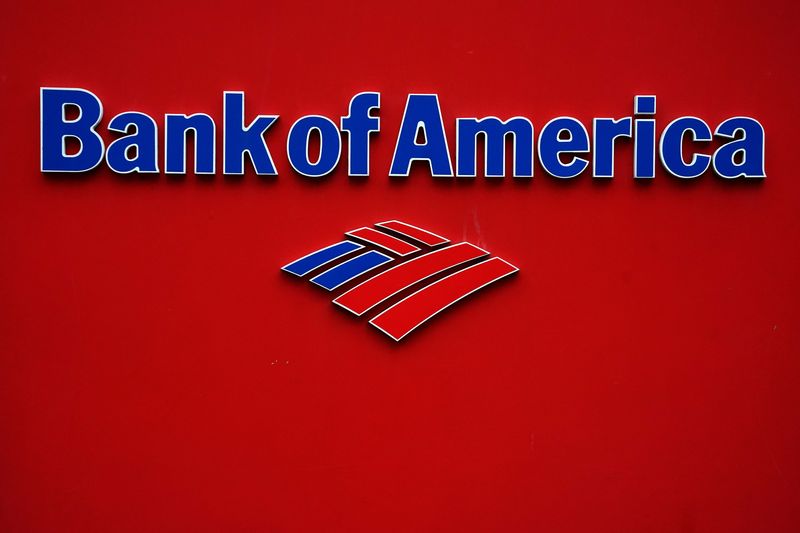By Pete Schroeder and Elizabeth Dilts Marshall
WASHINGTON (Reuters) -Bank of America has been fined $225 million by a pair of U.S. banking regulators over what they called a "botched" handling of jobless benefits during the pandemic.
The Office of the Comptroller of the Currency (OCC) and the Consumer Financial Protection Bureau (CFPB) said the bank had a faulty fraud detection program that improperly froze the prepaid card accounts of thousands of people seeking jobless benefits in 2020 and 2021.
In addition to the fine, the regulators ordered the bank to pay redress to harmed consumers, which the CFPB estimated would amount to hundreds of millions of dollars more.
As jobless claims surged during the pandemic, the CFPB said the bank, which administered prepaid jobless benefit debit cards on behalf of 12 states, implemented an automatic fraud filter, which resulted in thousands of cardholders having their accounts improperly frozen.
Worsening matters, regulators said the bank made it difficult for people to unfreeze their cards, insufficiently staffing their call centers and requiring people to spend hours on hold to try and address the matter.
“Taxpayers relied on banks to distribute needed funds to families and small businesses to rescue the economy from collapse when the pandemic hit,” said CFPB Director Rohit Chopra. “Bank of America failed to live up to its legal obligations. And when it got overwhelmed, instead of stepping up, it stepped back.”
The bank did not admit nor deny the findings. In a statement, a bank spokesperson said states were responsible for reviewing and approving unemployment applications, and the penalties arose "despite the government's own acknowledgement that the unemployment program expansion during the pandemic created unprecedented criminal activity."

In addition to the fines, the bank now faces a pair of consent orders from the OCC and CFPB, which directs the bank to overhaul its policies and address shortcomings. Such consent orders can linger with banks for years, and subjects a firm to heightened regulatory scrutiny as it works to prove it has addressed underlying problems.
As part of the orders, the bank is directed to establish a remediation plan to identify harmed consumers and determine how much they should be repaid.